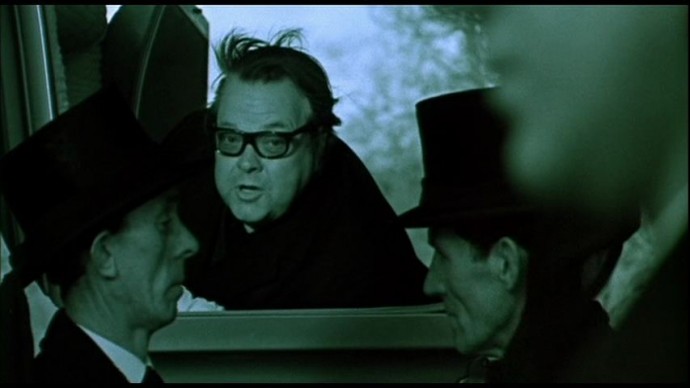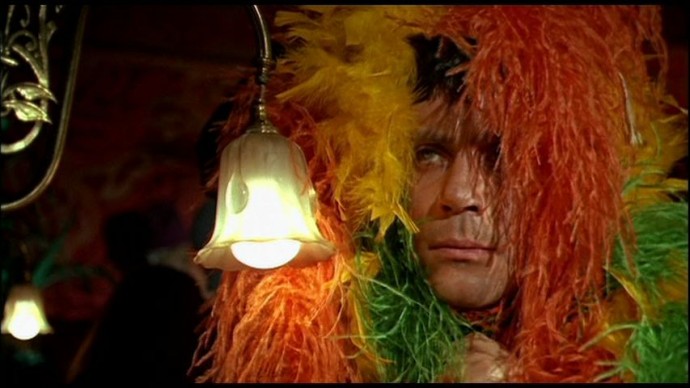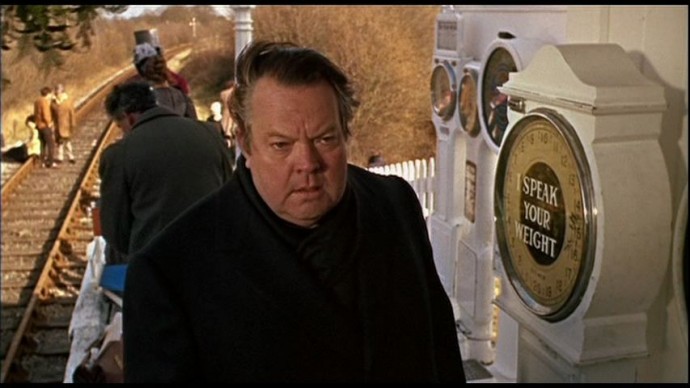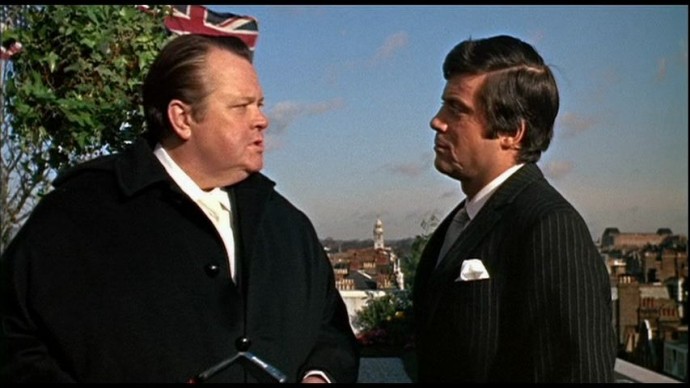Yes, 1967 marked the “Summer of Love.” It was the same year the Beatles gave the world Sgt. Pepper’s Lonely Hearts Club Band, the year John Lennon openly courted controversy by appearing in Richard Lester’s anti-war film How I Won the War, and the year that the Beatles pushed the boundaries of what they could get away with by making (on their own) Magical Mystery Tour. It was also the year that Michael Winner made the blisteringly dark satire on contemporary society—and whole British Invasion/Swinging London mindset—I’ll Never Forget What’s’isname. It is, I believe, Winner’s masterpiece. (Some would argue that isn’t saying much, but I don’t agree.) Remarkably, it manages to question the Invasion era, and still be very much a part of it. Oliver Reed stars as Andrew Quint, a 32-year-old and very successful director of TV commercials for the powerful Jonathan Lute. He has money, an Alfa Romeo, a wife (Wendy Craig) and two mistresses (Marianne Faithful and Ann Lynn). He’s also unhappy—and as the film opens, he spectacularly quits his job by hacking his desk up with an ax. “Andrew, darling, you’re always threatening to resign,” remarks Lute, who is unimpressed with Andrew’s notion of finding “an honest job.” (“Silly boy, there aren’t any.”) Andrew’s efforts to prove otherwise seem to support Lute’s belief, so Andrew agrees to direct one more commerical—one “that tells the truth,” with somewhat unexpected results. The film manages to be funny, bitter and sad—and, 44 years later, it still has the power to shock. It’s a far too little known essential of 1960s cinema.

When the film first appeared in 1967, it caused more than a little furor. First of all, Universal was horrified to find it contained the word “f**king” (one of the first, if not the first uses of that dreaded word in a movie). They only agreed to let it stand if the sound a car horn obscured the word (you can still tell what Marianne Faithful is saying). Then it was submitted to the MPAA—and refused a seal. This was a year before the ratings, so the film went out unapproved. The big fuss was over a scene of implied oral sex. Winner bizarrely denies that was what he meant to convey, but I’m hard-pressed to imagine what he wanted to otherwise convey. Then the Catholic Legion of Decency got into the act and slapped the (now not used) “C”—for “condemned”—on it. (I’ve never know what evil was supposed to befall you if you saw one of these films, but they were clearly frowned on.) Ironically, I first saw the film on regular broadcast TV in 1974—with three or four small trims made to get it deemed suitable for transmission.

The fuss is behind us now and the film is slowly starting to come into its own. It was only a matter of time before the blanket condemnation of Winner’s work would start to erode—and it finally has started. His work is decidedy uneven, sure. Another British filmmaker once told me, “Michael’s problem is he’s more interested in being a director than he is in making the film.” That may be, but he’s still a key figure in 1960s British cinema—and it’s absurd to pretend otherwise. When he’s at the top of his game—as he is here—he’s very good indeed. Even at his least successful, there’s a consistency of style that’s admirable—though it’s occasionally in the wrong place.

The film is also easily the best of several good roles he handed to Oliver Reed. Reed himself was never shy about giving Winner his due. He once remarked, “Hammer gave me my start. Michael Winner gave me my craft. Ken Russell gave me my art,” and that’s fair, though in this instance I’d say Winner gave him some art, too.

What’s’isname is also notable for being one of a small handful of films from this era to actually give Orson Welles something worth doing besides just pick up a paycheck to keep whatever personal project Welles was working on going. Welles even receives top billing, though this wasn’t his idea. He thought it would be great if the billing read: starring Oliver Reed, Carol White, Wendy Craig, Harry Andrews, but Orson Welles. Unfortunately, Welles’ agent didn’t find this even slightly amusing. Fortunately for us, nearly everything Welles does in the film is very amusing indeed. His Jonathan Lute is a monster, but he’s a funny monster—often in throwaway bits as in his encounter with a bowl of breakfast cereal (“I thought these were supposed to make humorous noises at us”), or his battle with a talking scale that “speaks” your weight. Not liking what he hears, Welles, mutters, “Liar,” hits the machine and is appalled to find it announces and even greater weight.

The movie would be worth seeing for Welles alone, but there’s so much more—and all of it is good. The highlight, if you don’t know by now, is the commercial that “tells the truth” for the Hamayasha Super 8 camera. It just may be the most outrageous—and shocking—little stretch of film in 1960s cinema. Happily, it’s housed in a film that’s worthy of it.




Before you comment
The comments section is here to provide a platform for civil dialogue on the issues we face together as a local community. Xpress is committed to offering this platform for all voices, but when the tone of the discussion gets nasty or strays off topic, we believe many people choose not to participate. Xpress editors are determined to moderate comments to ensure a constructive interchange is maintained. All comments judged not to be in keeping with the spirit of civil discourse will be removed and repeat violators will be banned. See here for our terms of service. Thank you for being part of this effort to promote respectful discussion.